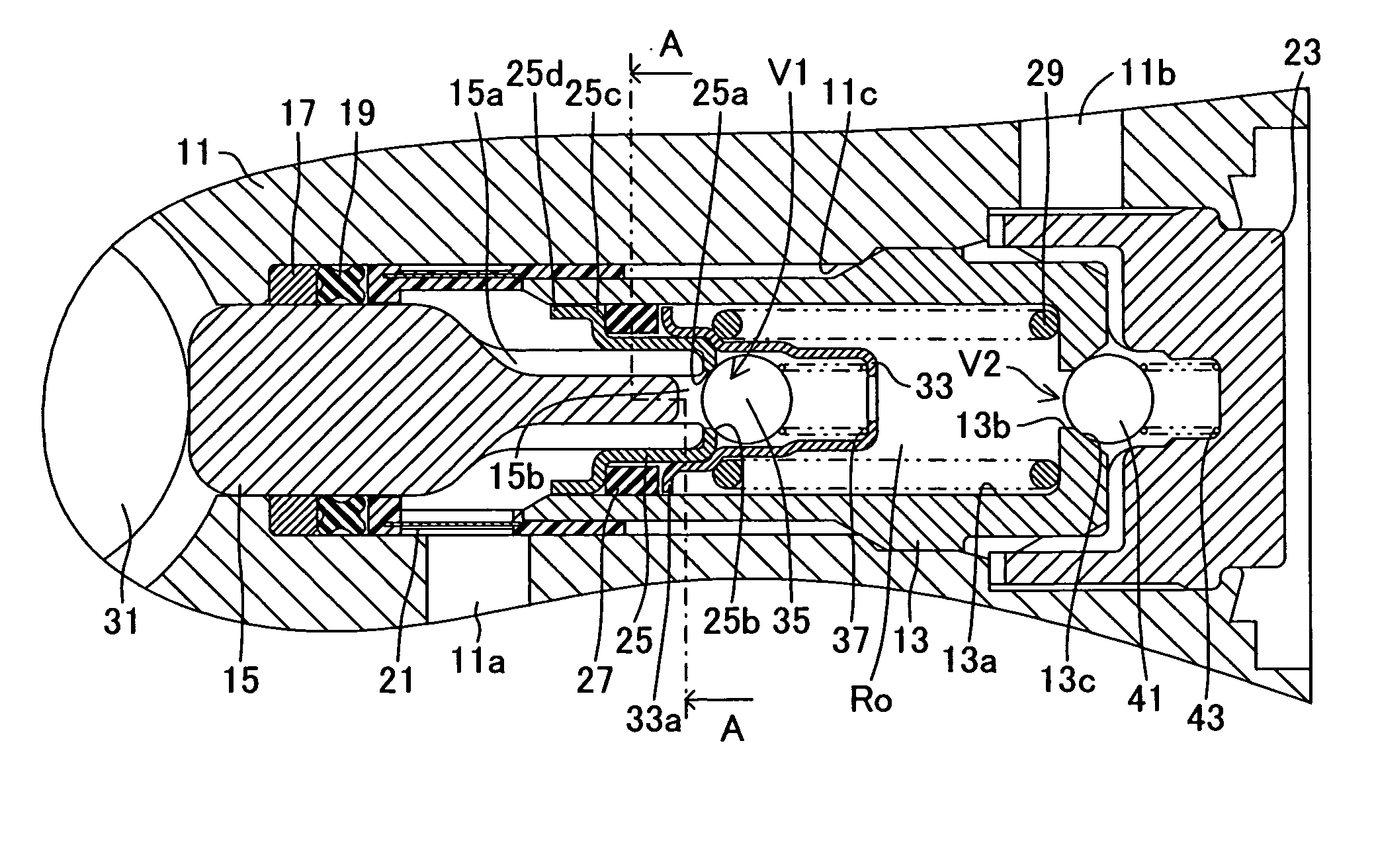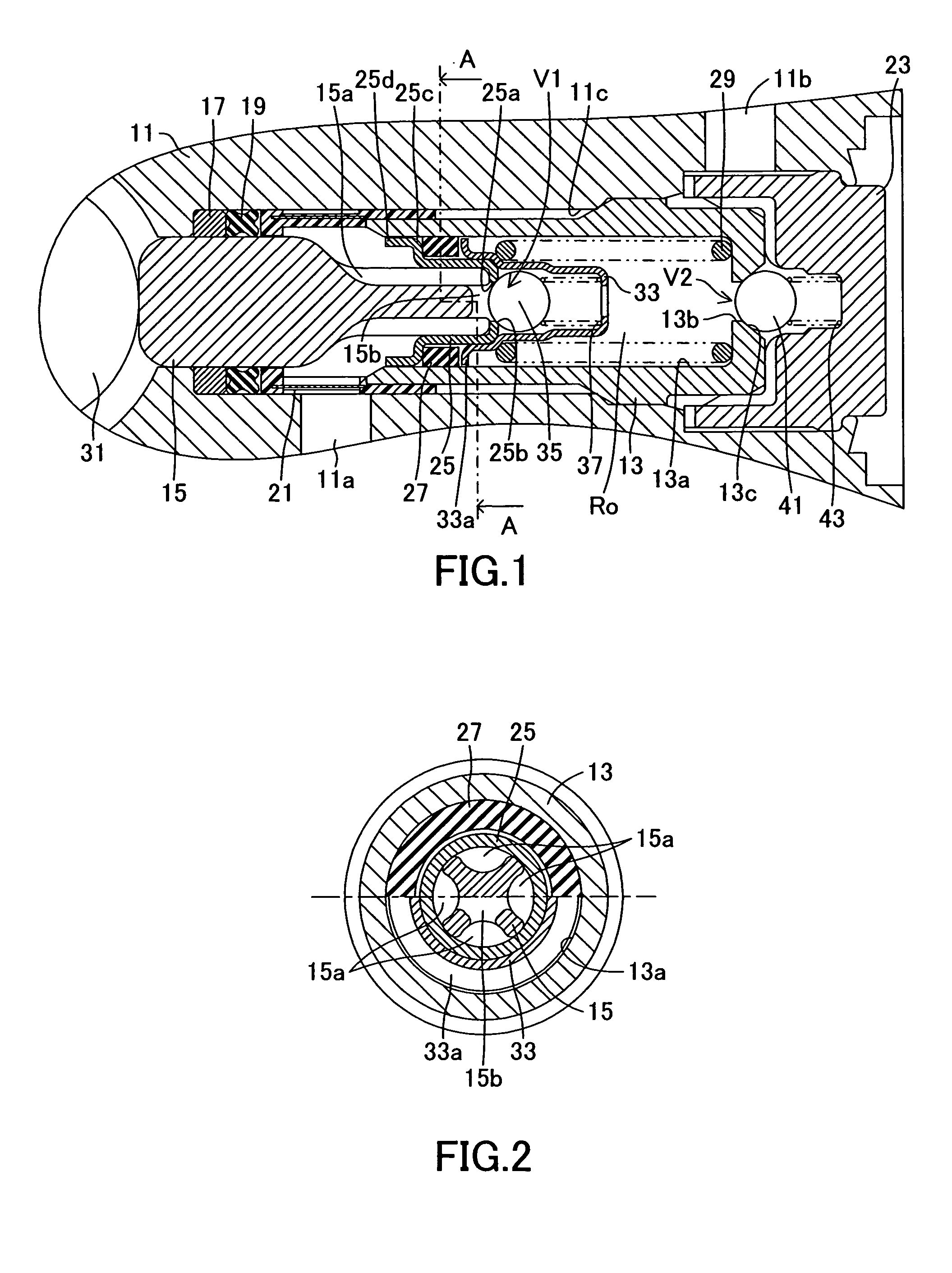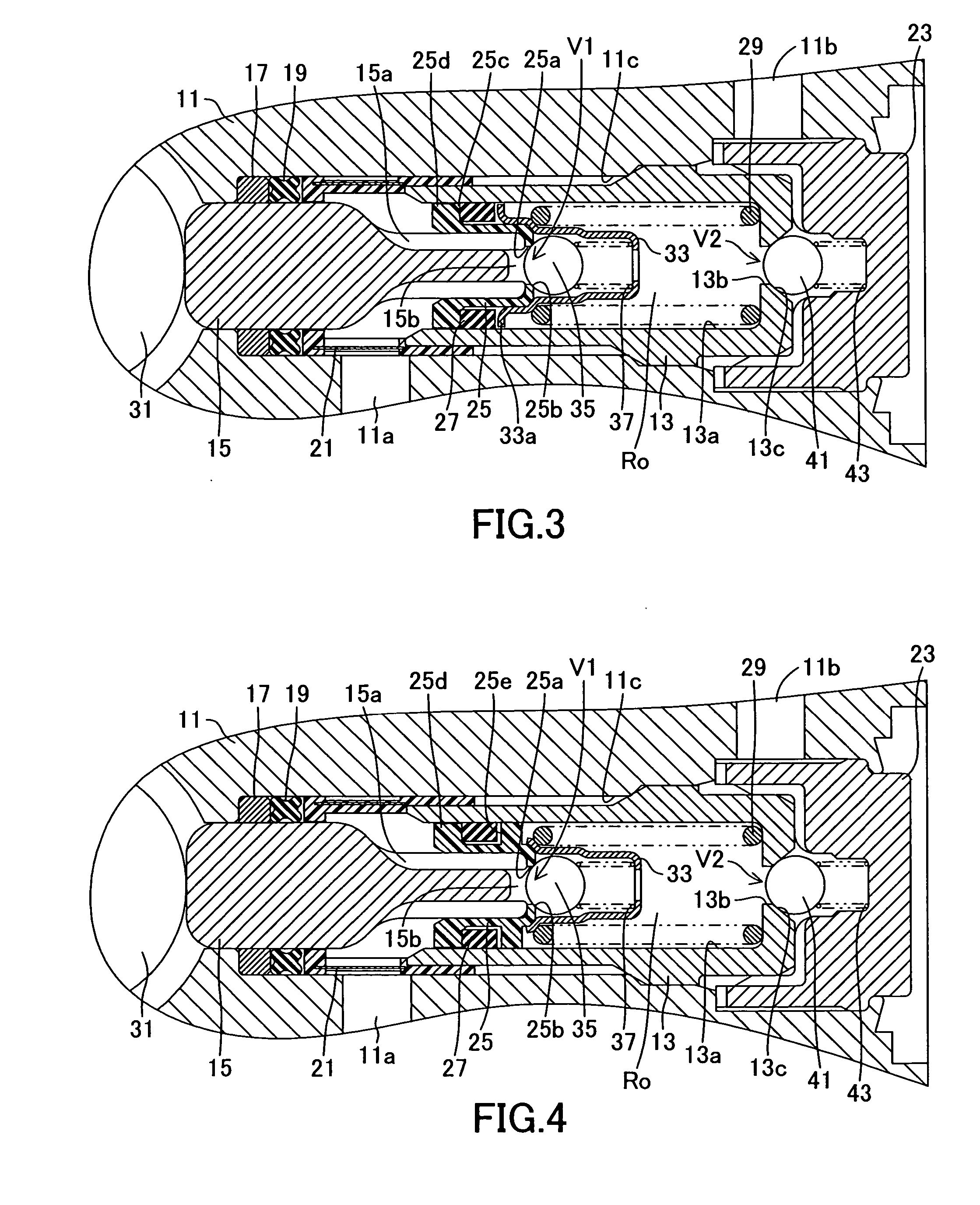Piston pump
- Summary
- Abstract
- Description
- Claims
- Application Information
AI Technical Summary
Benefits of technology
Problems solved by technology
Method used
Image
Examples
first embodiment
[0031] In the thus-configured piston pump of the first embodiment, when an electric motor (not shown) rotates the eccentric member 31, the eccentric member 31 and the piston return spring 29 cooperatively function to axially reciprocate the piston 15, thereby alternately increasing and decreasing the volume of the pump chamber Ro. The suction valve V1 and the discharge valve V2 function accordingly, whereby fluid flows from the suction port 11a to the discharge port 11b.
[0032] In the piston pump of the first embodiment, a portion of the flow path connecting the suction port 11a and the suction valve V1 is defined by the plurality of communicating grooves 15a formed on the outer circumferential surface of the piston 15, and the cylindrical seat member 25 externally and fixedly fitted to the piston 15 in a region corresponding to the communicating grooves 15a. This feature allows the piston 15 to be manufactured without involvement of cuffing (the piston 15 can be, for example, a for...
fourth embodiment
[0040] In the fourth embodiment shown in FIG. 5, the filter 21 is provided in a region other than the piston pump. An annular mounting groove 25f is formed on the seat member 25. A slide ring 39 is fitted into the annular mounting groove 25f in an axially movable condition. Radially extending communication holes 25g are formed in the seat member 25 in order to establish communication between a bottom portion of the annular mounting groove 25f and the corresponding communicating grooves 15a. The slide ring 39 can move along the axial direction of the piston 15 in relation to the piston 15 while synchronizing with increase and decrease in the volume of the pump chamber Ro. The slide ring 39 serves as a partition between a suction chamber R1 and a discharge chamber R2, which are provided between the pump housing 11 and the piston 15.
[0041] In the fourth embodiment, when the volume of the pump chamber Ro increases, the slide ring 39 shuts off communication between the suction chamber R1...
PUM
 Login to View More
Login to View More Abstract
Description
Claims
Application Information
 Login to View More
Login to View More - R&D
- Intellectual Property
- Life Sciences
- Materials
- Tech Scout
- Unparalleled Data Quality
- Higher Quality Content
- 60% Fewer Hallucinations
Browse by: Latest US Patents, China's latest patents, Technical Efficacy Thesaurus, Application Domain, Technology Topic, Popular Technical Reports.
© 2025 PatSnap. All rights reserved.Legal|Privacy policy|Modern Slavery Act Transparency Statement|Sitemap|About US| Contact US: help@patsnap.com



